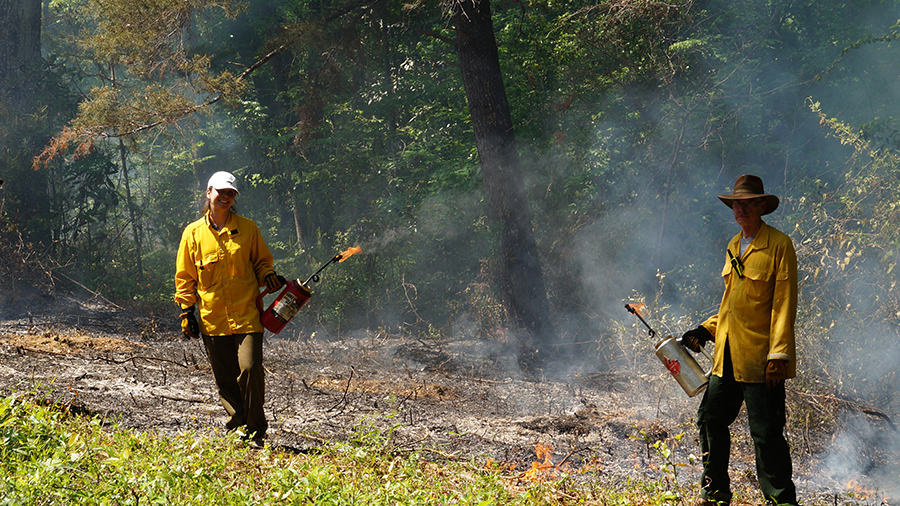Doctoral Dynamos
Postdoctoral scholars contribute to Florida State’s research excellence
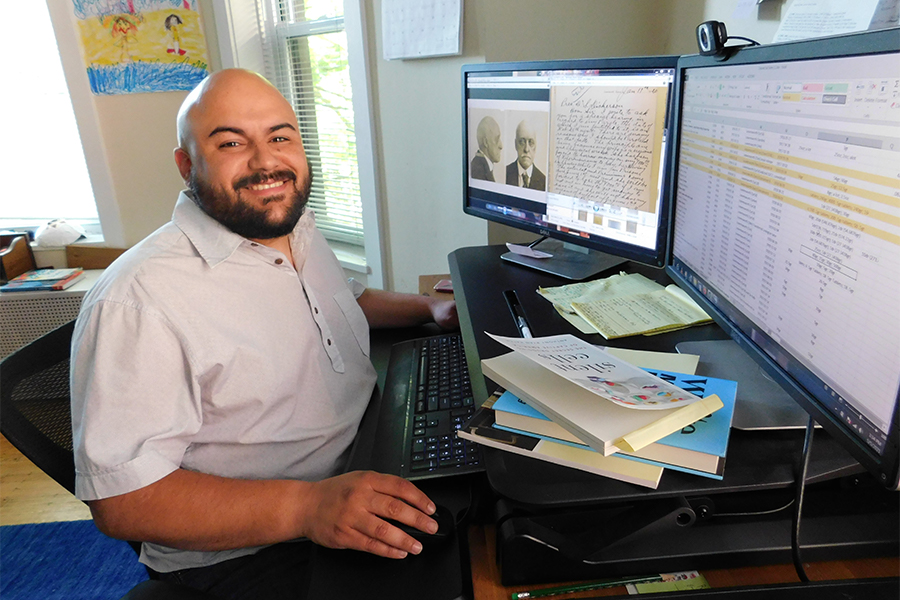
Roberta Tatti is essential to the research pursuits in Florida State’s interdisciplinary Program in Neuroscience, but she’s not a faculty member. Or a staff member. Or a student. Tatti and nearly 250 other researchers at FSU hold a role unlike any other at the university — they are postdoctoral scholars.
The period after earning a doctorate is an exciting time in a scholar’s career, and postdoctoral appointments provide essential training while allowing the hosting university to benefit from an individual dedicated purely to research activities. The Carnegie Foundation ranks FSU in its prestigious doctoral research-intensive category, the highest for a graduate-research university, which means FSU’s postdocs have unprecedented opportunities to explore their academic fields and to drive research to new heights with their expertise.
“Postdoctoral scholars are the backbone of a research-intensive university,” said Debra Fadool, director for the Office of Postdoctoral Affairs, associate dean of the FSU Graduate School, and Distinguished Research Professor in the Department of Biological Science.
“Unlike professors who have many university, teaching, grant writing or research management responsibilities, postdoctoral scholars dedicate almost all of their efforts to conducting research,” she said.
Because of this intense commitment to research and postdocs’ continual presence in laboratories across departments, they are heavily involved in day-to-day intellectual discussions pertaining to research team strategy, as well as supervising doctoral students and training undergraduate students.
Intensive preparation
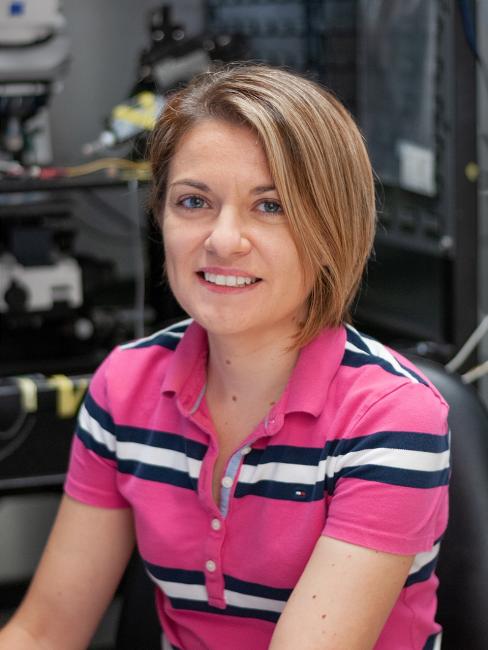
Resources and development opportunities are provided to postdoctoral researchers currently training at FSU through the Office of Postdoctoral Affairs, founded in 2015 by the combined efforts of the Office of the Vice President for Research, the Office of the Provost, and the FSU Graduate School. Some of their most notable opportunities include the Fall Postdoctoral Symposium, which features interdisciplinary keynote speakers; guest panelists; the Poster Competition, which allows scholars to share their research across disciplines through appealing posters; and the Five-Minute Research Competition, which gives researchers five minutes or less to explain the nuances of their work, jointly hosted by the FSU Postdoctoral Association. The Spring Event, geared toward professional development, includes workshops, panels, and potluck from countries represented by the postdoctoral fellows.
Tatti, a native of Italy working in Fadool’s laboratory, came to the university through the National Institutes of Health-sponsored Chemosensory Training Program. In addition to conducting research on how the olfactory system can serve as a metabolic sensor, Tatti assists and trains undergraduate and graduate students in the lab and supports Fadool in planning, writing, and submitting grant applications.
“There’s so much work going on beyond the published research,” Tatti said. “A postdoctoral researcher is someone both faculty and younger students can depend on for anything in the lab, whether it’s recording hourly data, guiding student experiments, or anything else the lab needs.”
“There’s so much work going on beyond the published research. A postdoctoral researcher is someone both faculty and younger students can depend on for anything in the lab, whether it’s recording hourly data, guiding student experiments, or anything else the lab needs.”
— Roberta Tatti,
FSU Postdoctoral Research Fellow
Upon the completion of postdoctoral training, many scholars pursue professorship tracks in academia or go on to work as scientists in research, industry, or government, or in other highly technical jobs. Tatti’s next steps include training as a chemist to work for the Florida Department of Environmental Protection.
Professional pipeline
The Provost Postdoctoral Fellowship Program, PPFP, is managed through the Office of Postdoctoral Affairs and is designed to diversify the pipeline of STEM faculty into academia. Its intent is to provide specialty postdoctoral training for top underrepresented scholars in the country for a period of two to three years. Although postdoctoral scholars can enter a number of highly technical professions, PPFP’s mission is to increase women, disabled persons, veterans, economically disadvantaged individuals, individuals with varied ethnicity, and minority scholars into the faculty workforce.
Beyond their main research, those interested in working as industry scientists might hone their business skills while others interested in pursuing professorships may seek additional training in teaching.
LaTasha Holden, a PPFP Fellow in the inaugural training group, works in the Department of Psychology and is the winner of the 2019 Postdoctoral Poster Competition for interdisciplinary work. She is mentored by associate professor of psychology and developmental psychology area director Sara Hart. By combining cognitive, social, and developmental psychology approaches, Holden’s research investigates the impacts of students who are marginalized or underrepresented in different testing and learning contexts in order to develop strategies that better support students’ needs.
This fall, Holden is set to begin a tenure-track position as an assistant professor of psychology at the University of Memphis, where she will focus on cognitive psychology and work in affiliation with that institution’s Institute for Intelligent Systems.
“I’ve worked closely with undergraduate research assistants through psychology’s Directed Individualized Studies course. After this course, I recruited my first graduate student collaborator who was funded in part through my PPFP grant,” Holden said. “I’m thankful for the personal and professional support I’ve received from Sara Hart, her lab, and the support within the Department of Psychology and the Florida Center for Reading Research.”
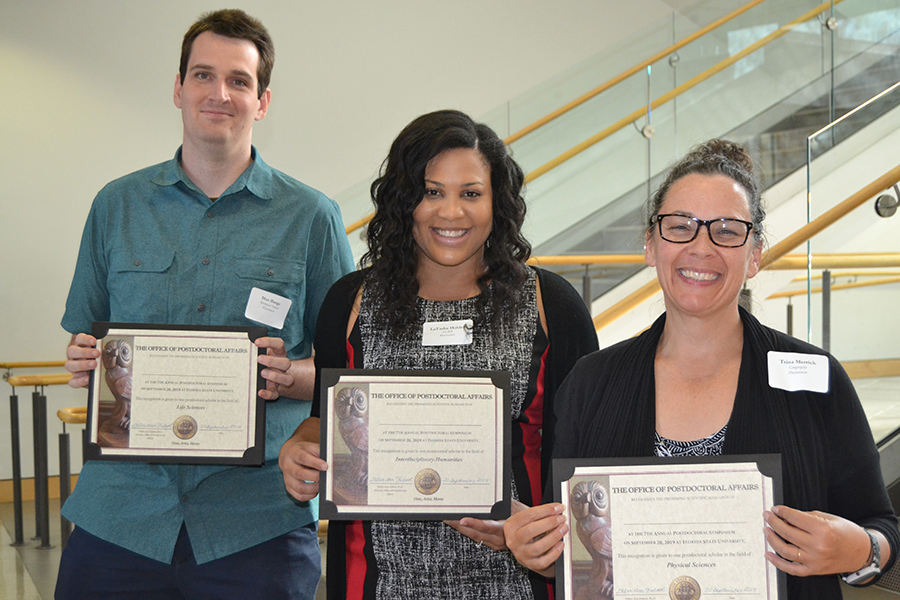
Interdisciplinary investigators
Richard Del Rio, another PPFP Fellow, conducts interdisciplinary research across the fields of history and medicine. From his position spanning the Department of History and the Department of Behavioral Science and Social Medicine, Del Rio examines the transformation of the American drug trade and its societal consequences.
His work focuses on compiling a market history detailing the relationship between pricing of proprietary medicine and political development of criminal justice policy in Chicago during the 19th and 20th centuries.
“Reflecting on my upbringing in New York, I came to recognize the policies, rhetoric and imaginings of the U.S. ‘War on Drugs’ as something that penetrated so many of the institutions and cultural spaces I interacted with,” Del Rio said. “To understand this policy regime and how it became so pervasive, I started my search for origins 100 years in the past to examine the drug market before the involvement of criminal justice institutions and to understand how drug war discourse has changed over the years.”
Due to the COVID-19 pandemic, many postdocs’ research has taken a new route. While he is currently unable to travel to access archives in person, many of Del Rio’s days are spent communicating with archivists and determining how to access hundreds of records necessary to his research. He hopes his work will contribute to new harm-reduction policy considerations more inclusive to groups whose positions have historically been excluded from policy decisions.
“My favorite thing about being a postdoctoral scholar at FSU is having the complete freedom to pursue my intellectual curiosity.”
— Richard Del Rio,
Provost Postdoctoral Fellowship Program Fellow
“My favorite thing about being a postdoctoral scholar at FSU is having the complete freedom to pursue my intellectual curiosity,” Del Rio said. “I’m thankful to be able to contribute to the dynamism of this research institution and have my research interests be received enthusiastically and with collegiality.”
Critical collaborators
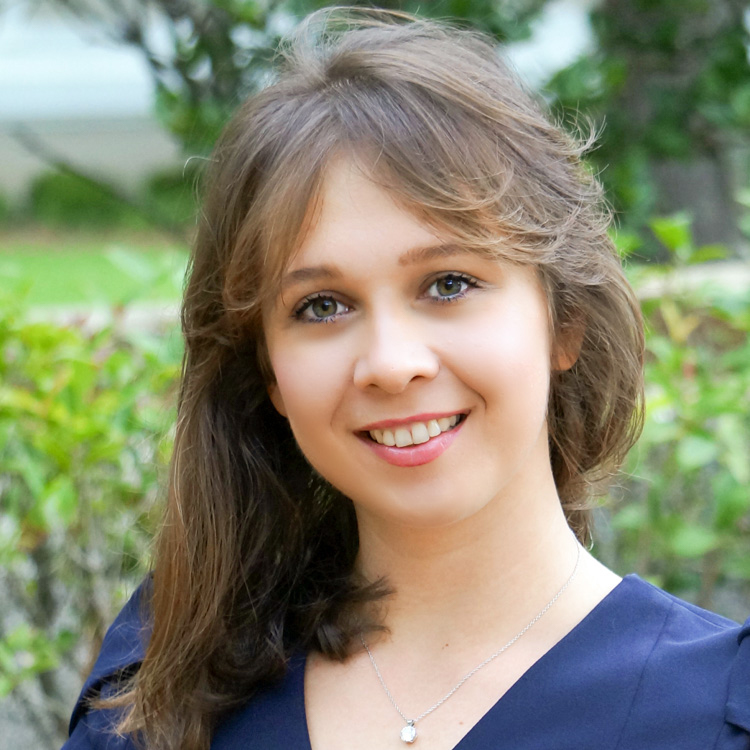
Yana Bebieva is a physicist and environmental scientist from Russia working with FSU’s Geophysical Fluid Dynamics Institute, the mission of which is promoting study of fluid-dynamical phenomena in Earth’s atmosphere, bodies of water, and fluid portions of the planet’s interior and applying this knowledge to solving geoscience and environmental problems. Bebieva is a College of Arts and Sciences Dean’s Postdoctoral Scholar Fellow, and her scholarship, which focuses on dynamics and thermodynamics of polar oceans and the dynamics of wildfires, is supported in part by the National Science Foundation. The A&S Dean’s Postdoctoral Scholar Fellows Program supports more than 30 FSU postdocs with $1.2 million in annual funding.
“I greatly appreciate how supportive and social the postdoctoral community is here. Before the pandemic, we went hiking, took trips to the beach, and enjoyed dinners together,” Bebieva said. “These interactions also curated professional collaborations, as we just finished an experiment at the FAMU-FSU College of Engineering facility in collaboration with postdocs and researchers who I met through these social gatherings.”
During her time at FSU, Bebieva developed and taught two courses in the FSU Honors Program, including scientific and social dimensions of climate change, through the Center for the Advancement of Teaching. She also received a Spring 2020 Travel Award and took third place in the 2020 Five-Minute Research Competition for her explanation of her fire spread research, which examines wind structure where surface fires spread.
“Postdoctoral fellows play a crucial role in FSU’s research enterprise. Our professors and graduate and undergraduate students engaged in research projects could not be as successful and prolific without the indispensable contributions of the postdocs in their groups,” said Mark Riley, dean of the Graduate School and Robert O. Lawton Distinguished Professor of Physics. “The essential part played by these brilliant individuals in the overall vitality of a Research I university simply cannot be overstated.”
McKenzie Harris is pursuing a master’s in media/communication studies. She earned a bachelor’s in English with a concentration in editing, writing and media in 2020.
